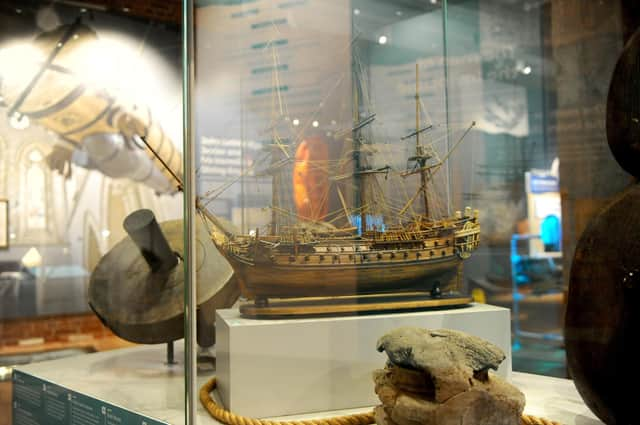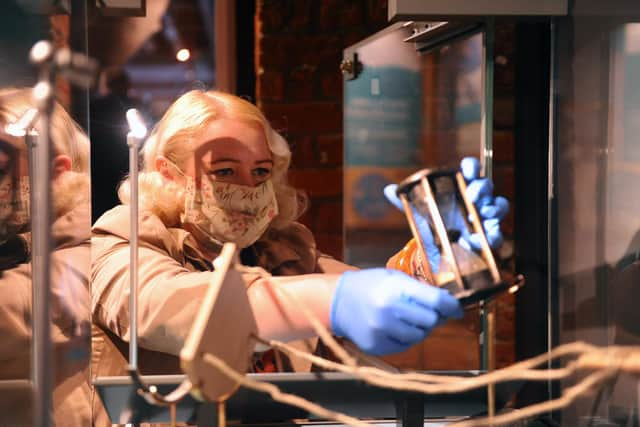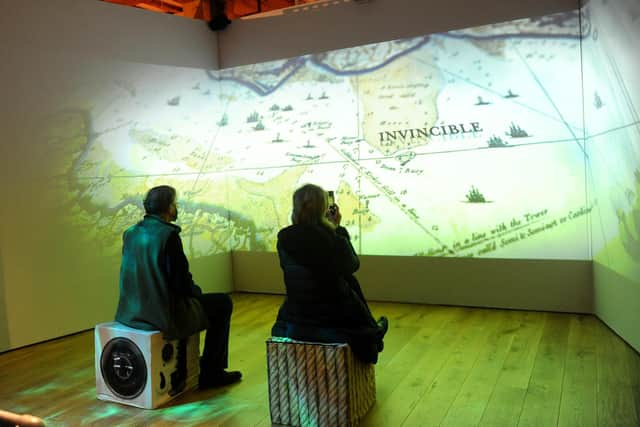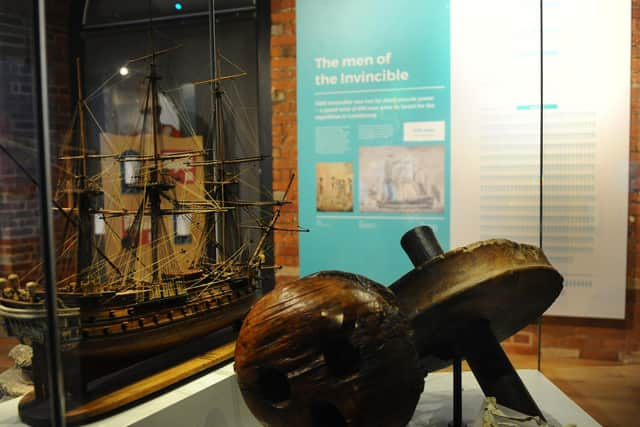New exhibition in Portsmouth tells tale of the Royal Navy's doomed 'Ferrari' of the seas HMS Invincible
This article contains affiliate links. We may earn a small commission on items purchased through this article, but that does not affect our editorial judgement.


The National Museum of the Royal Navy has finally cut the ribbon on the new display at Portsmouth Historic Dockyard, which reveals the tragedy behind the sinking of HMS Invincible.
The 18th century 74-gun warship – seized from the French by the British – sunk in the Solent in 1758 after she ran aground.
Advertisement
Hide AdAdvertisement
Hide AdFor centuries the wreck of the mighty vessel remained untouched at the bottom of the sea until a major excavation project was launched to recover artefacts from Invincible.


Now items from the wreck, alongside the tale of the warship’s demise, have taken centre stage for the first time at the new exhibition, entitled Diving Deep: HMS Invincible 1744.
Dr Eileen Clegg, community archaeology producer who has led the project, was thrilled to have finally opened up the display.
She said: ‘It’s incredible to finally open up. It’s been a lot of hard work. We’ve had an army of volunteers beavering away behind the scenes, doing everything online at first. I didn’t think we’d be able to do it.’


Advertisement
Hide AdAdvertisement
Hide AdInside, families can see first hand items recovered from the ship, ranging from weaponry and trinkets, to the captain’s own wig curlers.
Visitors can also find out about how divers excavated the ship, as well as see images of the Invincible on the seabed.
Archaeologist Giles Richardson was part of the team of divers from the Marine Archaeology Sea Trust who worked on Invincible.
The 36-year-old Royal Navy reservist from Oxford said: ‘It’s been amazing to see Invincible go from lumps of wood to something where people can walk in and go “oh wow, that’s cool” brilliant.’


Advertisement
Hide AdAdvertisement
Hide AdInvincible was originally built in France in 1744 but was seized by the British in 1747.
Her unique hull and rudder design meant she was faster and more nimble than other warships of the era - a trait that the navy soon copied for their fleet.
Dr Clegg added: ‘She was like a Ferrari. She was fast, agile and nippy. She could take on bigger ships, single-handedly she could take out a three-deck flagship like HMS Victory – and she did, she took out French and Spanish flagships.’
Invincible sank on February 19, 1758 after ‘everything went wrong’, Dr Clegg said.
Advertisement
Hide AdAdvertisement
Hide Ad‘She was told to set sail but her anchor gets stuck underneath the bow so she has got no brakes; her rudder jams so she had no steering; the wind blew her out of control onto a sand bank and over four days tipped her over,’ said Dr Clegg.
The exhibition is open now.
Looking for the latest Royal Navy updates from Portsmouth? Join our new Royal Navy news Facebook group to keep up to date.
A message from the Editor, Mark Waldron
Thank you for reading this story. The dramatic events of 2020 are having a major impact on our advertisers and thus our revenues.
The News is more reliant than ever on you taking out a digital subscription to support our journalism.
Every subscription helps us continue providing trusted, local journalism and campaign on your behalf for our city.
Comment Guidelines
National World encourages reader discussion on our stories. User feedback, insights and back-and-forth exchanges add a rich layer of context to reporting. Please review our Community Guidelines before commenting.
